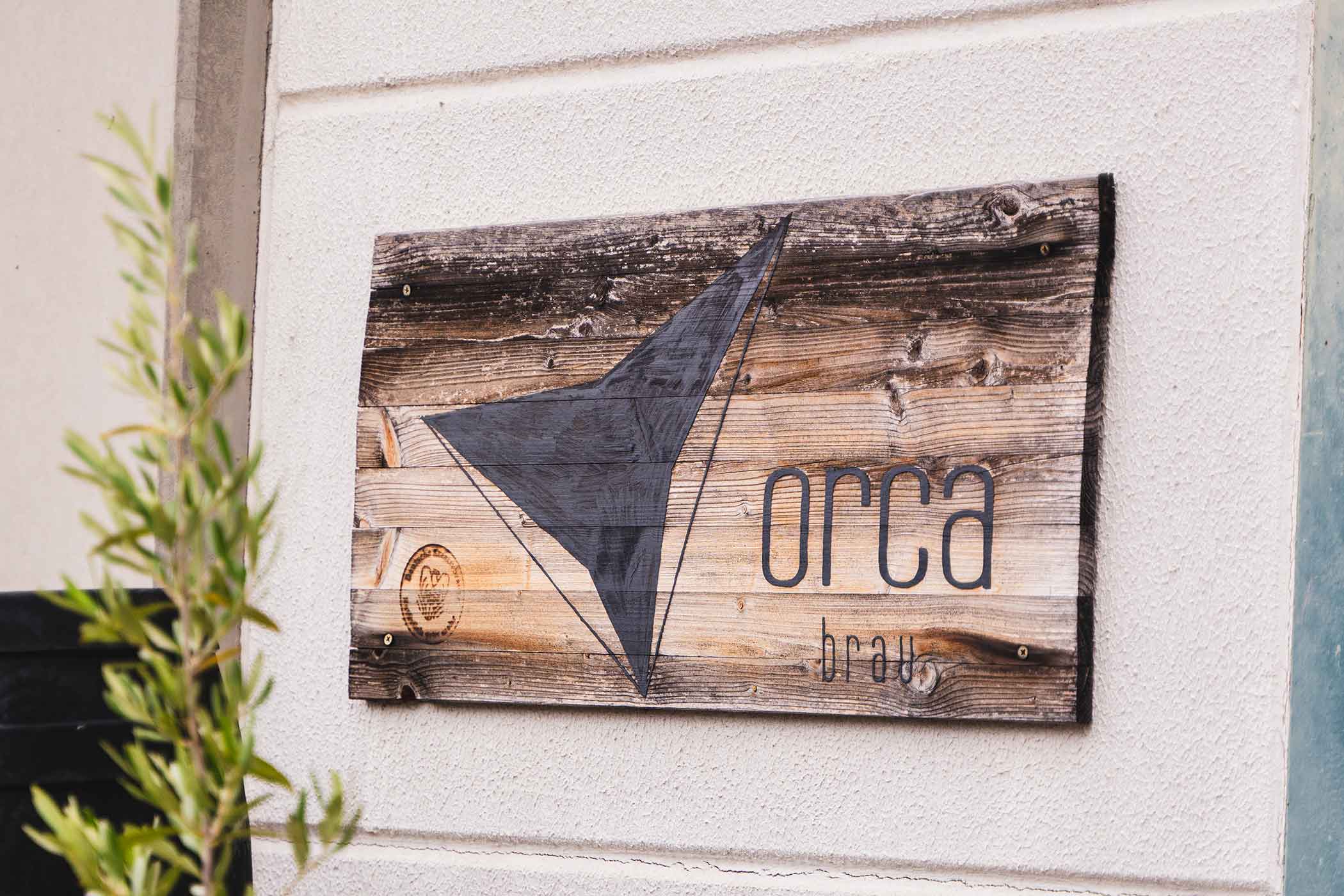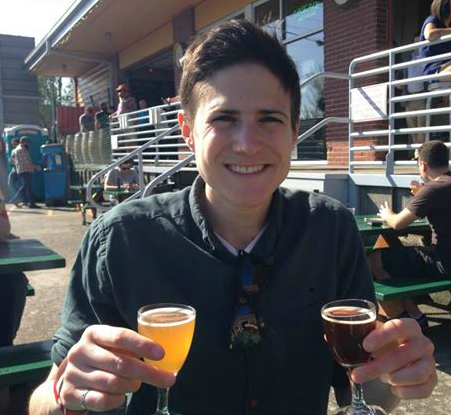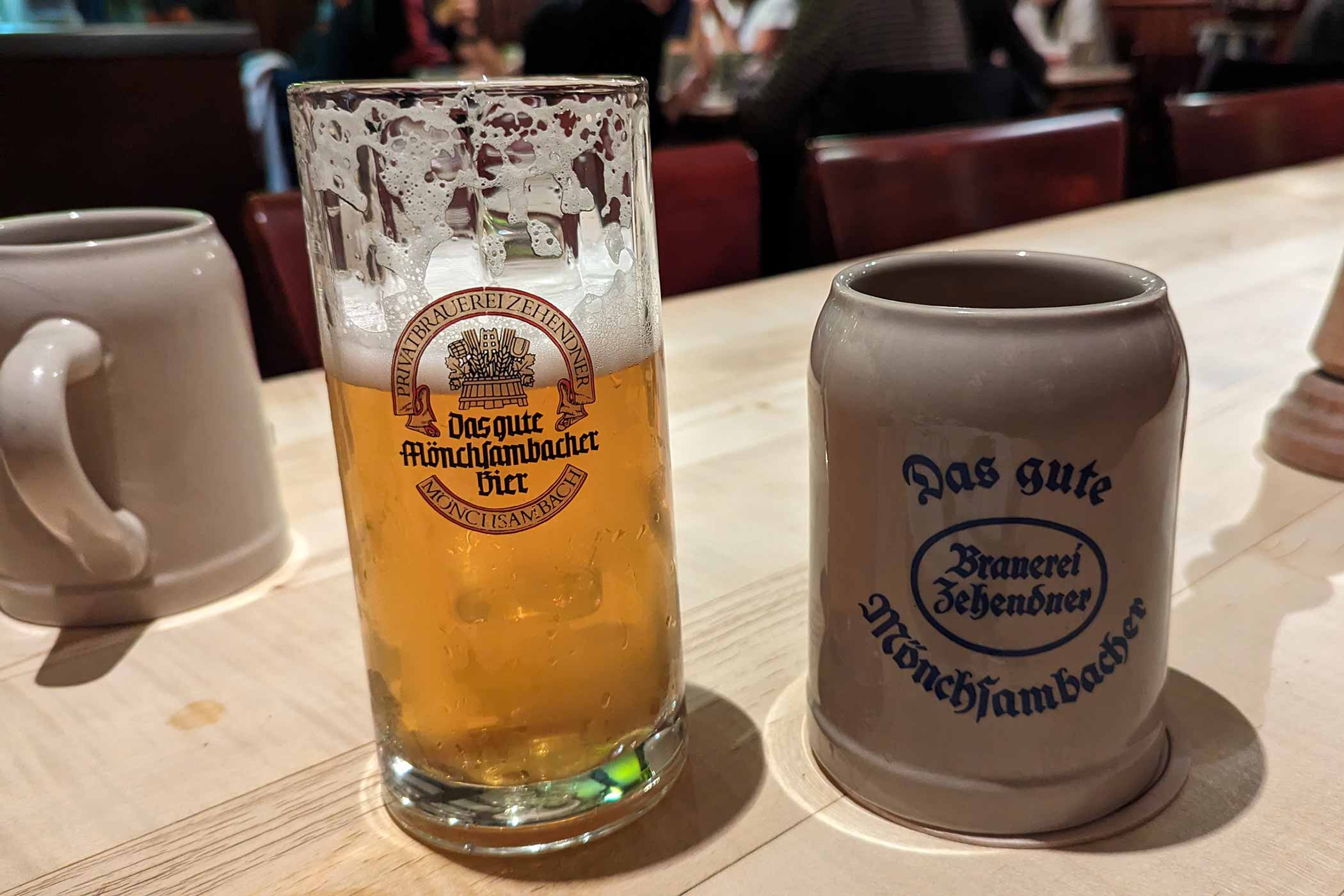Shop
Brew Free or Dive Trying: The Orca Brau Story
A whale in the wild.
Like This, Read That
“Save Orcas, Drink Beer.” That’s the motto at Orca Brau, a craft brewery in Nuremberg, Germany, that’s flying high above what founder Felix vom Endt calls “the big ocean of industrial beer.”
We’re standing inside Orca Brau’s tiny brewery on a rainy Monday morning. After plans fell through to visit one of the area’s top sausage producers, we pivoted, heading to Orca Brau on a whim.
Vom Endt stands by their bottling machine, one of two people currently in the brewery. As he pushes bottles onto the conveyor, he tries to understand what a group of twenty Americans is doing here.
We’re in Germany as a part of the Untappd x Trip’s Beer Trips German Bier Adventure. Over five unforgettable days, we journeyed through these storied regions, tracing a frothy path from bustling biergartens in Munich to smoky lagers in Bamberg, from hopping countryside cellars to medieval castle courtyards.
Interested in hearing when we curate our next trip? Sign up here to get updates first.
“Normally, in Germany, you need an appointment to visit,” he jokes with us heartily before welcoming us in like family.
Over the noise of the machine vom Endt bellows, his dark, scraggly beard bobbing up and down with his exuberant laugh. He explains what the brewery is all about.
“We love whales, and the orca is super smart and aggressive,” says vom Endt, who spent a year close to orcas in Vancouver. “We’re smart and aggressive, pushing boundaries, doing something different in Germany like craft beer.”
Vom Endt is like Germany’s version of Keiko in the early-’90s American film Free Willy, breaking through the chains of brewing captivity to captivate traditional German beer drinkers with IPAs infused with spruce tips, porters smoked with chilies, and everything in between.
In craft beer, we often affectionately refer to “whales” as an outstanding beer that’s hard to come by, highly sought after across oceans, and extra-orca-nary. It’s fitting that Orca Brau named itself after one of the most dangerous apex predators in the water, because they’re absolutely killing it.
In a land that has loved lagers for so long, Orca Brau dares to be different.
Seas-ing the Day
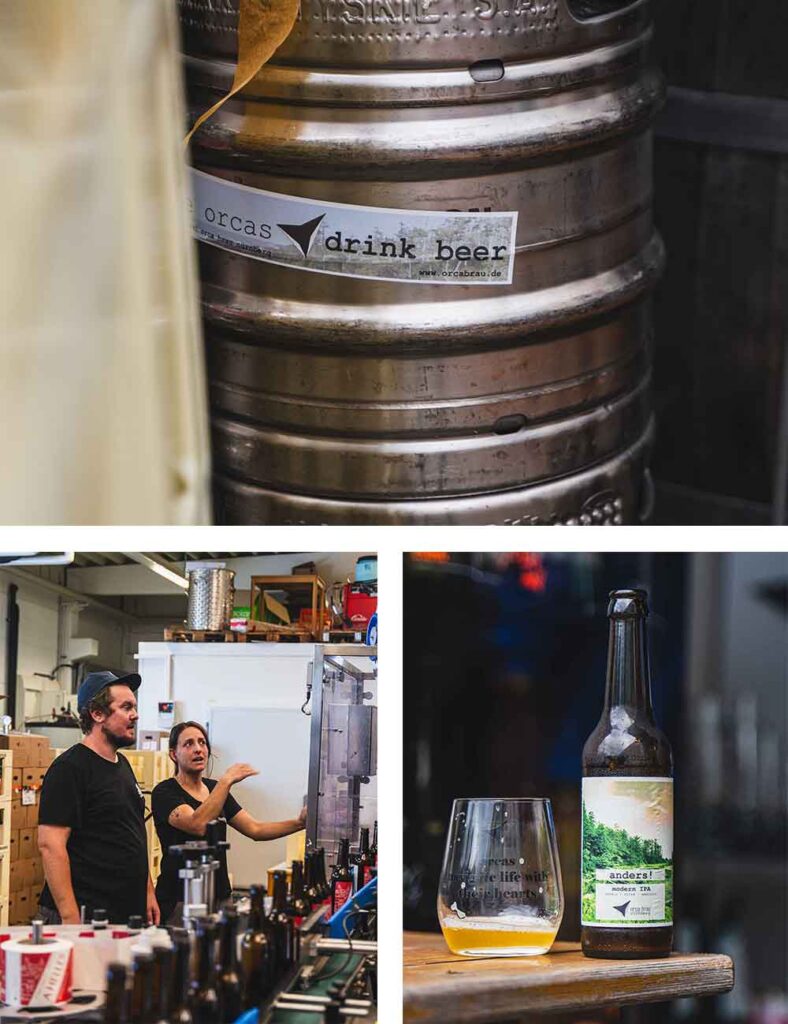
Photography courtesy of Magic Muncie, Social Media Manager, Hop Culture and Untappd
For vom Endt, a love of beer started organically. For five years, he ran a highly successful beer blog in Germany called Lieblingsbier.
But when he and his then-girlfriend (now wife), Susa, graduated, they decided they wanted to challenge themselves, relocating to somewhere other than Germany.
Vom Endt thanks Michael Bublé for showing him Canada. Not literally, but through the TV. In 2010, Vancouver hosted the Winter Olympics. While watching the events at 1 a.m., vom Endt says Bublé came on, showing off his hometown.
“Look, here’s the ocean; there are the mountains; here you can eat Chinese food,” he remembers. “Wow, that’s pretty cool. Let’s go to Vancouver.”
For vom Endt, who had never been to the North American country before, he knew only three things: 1) it’s big; 2) there are only two people in the country and two hundred bears; and 3) there are lots of lakes, mountains, and snow!
But over his two years in North America, he found so much more.
In the vibrant West Coast Canadian city, vom Endt threw himself into the craft beer industry, working for a small craft beer shop and brewery.
“For me, it was totally clear, I want to work in beer,” recalls vom Endt, who considered his resume his beer blog and his German beer-drinking heritage.
But Canadian craft beer wasn’t about centuries-old drinking traditions. Instead, vom Endt found tiny, homespun businesses popping up, cobbled together by little more than fundraising from friends and an awe-inspiring passion.
And instead of bottom-fermenting beers, he found hop-loaded top-fermenting beers.
After starting part-time at a wine and lager store, vom Endt began helping out on the bottling line at Parallel 49 Brewing Company.
One of ten people, vom Endt helped pack bottles, meeting an eclectic group of people.
“Payment wasn’t a lot,” says vom Endt, “but we got free beer … and we had a lot of fun.”
His first time officially working in a craft brewery, vom Endt quickly fell in love with the camaraderie and community.
“I want to do this full time,” vom Endt remembers thinking. “Just hanging out with those people in Vancouver and having a good time.”
Vom Endt eventually worked his way up to a full-time gig, but after a year, his work visa ran out.
Having a Whale of a Time
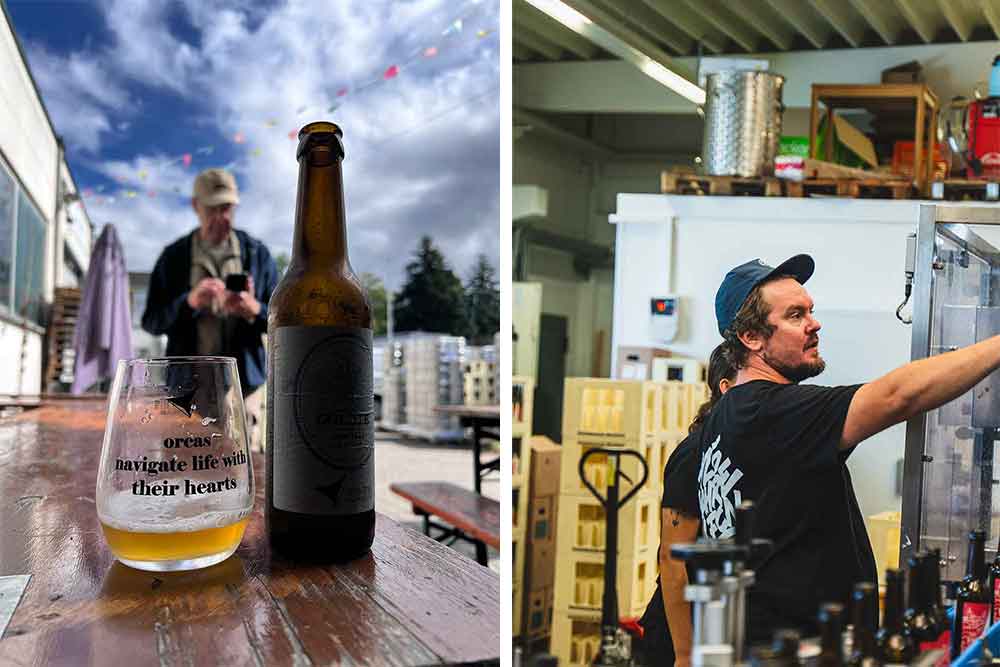
Photography courtesy of Magic Muncie, Social Media Manager, Hop Culture and Untappd
To buy themselves some more time, vom Endt and his girlfriend got a minivan and traveled down the West Coast into the United States—all the way to San Diego.
“We slept overnight at Venice Beach in an alley,” shares vom Endt, “which was super scary, actually, but it was fun.”
Along the way, vom Endt stopped at Hopworks in Portland, Firestone Walker in Paso Robles, and Stone in Escondido.
During three months on the road, vom Endt started talking about what he wanted to do with his life.
Although not a skilled brewer by any means (he calls himself more of a “beer nerd” at the time), he started to dream about opening his own brewery.
A pipedream materialized: opening up their own Northwest American-style brewery back home.
Killer Instinct
Vom Endt struggled to leave Canada, but with no choice, he moved to Berlin to be closer to his dad.
A social worker by trade, vom Endt started to homebrew seriously, buying a stainless steel pot from, of all places, the United States.
He spent time working for a startup called the Berlin Bier Academy, trying to educate restaurants and hotel staff about craft beer.
“There’s something new,” says vom Endt. “It’s called an IPA. Want to try it?”
Vom Endt says the answer more often than not was a resounding no. “Beer is boring,” he heard many times. “We stick to wine.”
Deflated, vom Endt realized he needed to get out from behind his desk and back in the brewery.
A two-year stint at Heidenpeters Brewery showed him how to run a brewery “and how not to run a brewery at the same time,” he laughs.
But with only three full-time people in the brewery, doing pretty much everything, vom Endt felt at home again. “I was back in a basement where it was dark and dusty,” he reminisces. “It was a lot of hard, hard work, but it was super cool.”
Causing a Comm-Ocean
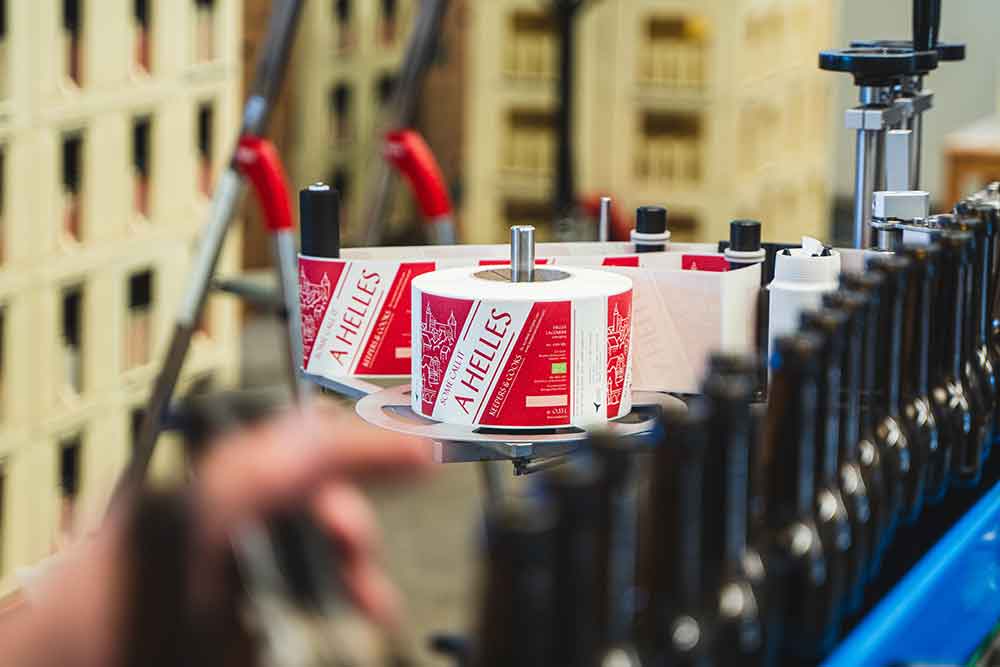
Photography courtesy of Magic Muncie, Social Media Manager, Hop Culture and Untappd
Vom Endt and his wife, Susa, had always said that when they started a family, they’d move back to Nuremberg.
So after Susa found out she was pregnant, “Olé, now we’re moving back to Nürnberg,” laughs vom Endt.
The timing, welcoming a new life into the world, seemed fortuitous. Vom Endt finally decided to strike out on his own. Heidenpeters had recently upgraded its brew kit. The old one, which vom Endt had worked on for two years, sat in a corner gathering dust.
Vom Endt approached Heidenpeters’ owner, Johannes Heidenpeters, and told him he was moving back to Nuremberg. “But you know what?” he says. “I’m also taking this old system with me to open up my own brewery.”
Apparently, Johannes had one piece of advice for vom Endt. “Don’t open up your own brewery; it’s not a good idea.”
But in the end, vom Endt took the old system and found a place for Orca Brau.
He took a leap of faith—much like Keiko from Free Willy over the wall. And so far, the gravity-defying jump to freedom has been scary and rewarding.
Eight years later, Orca Brau has weathered all headwinds, jumped over all obstacles, and aggressively challenged historic German stereotypes to become one of the most underrated craft breweries in the country.
Whale Worth the Wait
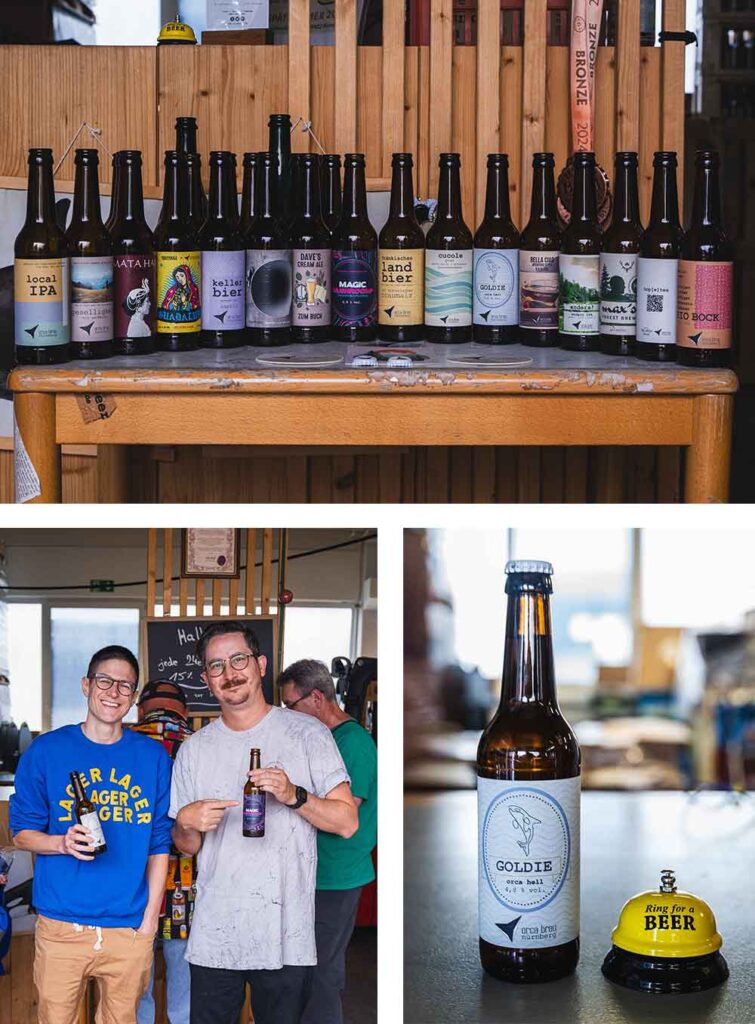
Photography courtesy of Magic Muncie, Social Media Manager, Hop Culture and Untappd
Here’s the thing: Orca Brau is a craft brewery. While this may not seem Earth-shattering to someone from the States, in Germany, craft breweries are still pretty uncommon. With hundreds of years of bottom-fermenting beer history, German breweries, for the most part, range from small, family-run operations to larger corporations that typically produce a limited roster of beers.
But vom Endt fell in love with what he calls a North American style of brewing when he lived in Vancouver.
Vom Endt says the idea from day one was to go three directions: traditional styles, modern styles, and push-the-boundaries-as-far-as-we-can experimental styles.
Meaning, Orca Brau opened with a pale ale, IPA, and chili-smoked ale, with rarely a core beer in sight in the first few years. At first, lagers were off the table, too.
With the old Heidenpeters brew kit, vom Endt couldn’t properly cool his fermentation tanks, so he had to rely on room-temperature fermentation for the first year and a half.
“When you open a brewery in Franconia, and you make a lager, and it doesn’t taste good, people will definitely never come back and drink your beers,” says vom Endt honestly.
Eventually, after getting the right equipment, vom Endt added in a couple more traditional lagers.
But even those had a twist.
One of our favorite beers, a beer called Goldie, features a blend of traditional barley and a historic Franconian malt that was revived from near extinction by Rhoen Malz.
“It has its own character—it’s a little bit more caramel, honey,” explains vom Endt, who says this means it’s actually a much harder Pilsner malt to brew with because you have to pay more for it and boil it longer. “But at the end, you have a super interesting and complex product … that makes the beer more interesting to drink.”
And in Franconia, the land of incredible lagers, setting yourself apart is key.
Our Trip’s Beer Trips guide, Tobias Kerschbaumer, who lives in Nuremberg, had this to say about Orca’s hell, “I drank this and it was perfect!”
Vom Endt recalls a story when an older gentleman showed up at the brewery asking for the landbier, which happened to be sold out at the time.
“‘My mom will be sad,’” vom Endt says the stranger told him. Apparently, this guy had given his eighty-year-old mom some of Orca’s landbier and she had told him it reminded her of her youth, when she was a young lady drinking in a beer garden in Franconia.
“That’s crazy because that was old barley from the ‘70s,” says vom Endt, “but maybe her brain put her back in her life when she was younger and drinking a beer!”
On the hoppy side, wanderlust, the brewery’s pale ale, is a best-seller.
Featuring just Pilsner and wheat malt, and Citra, Mosaic, and Simcoe hops, wanderlust currently ferments with Lallemand Verdant IPA yeast (used to be US-05) to create a slightly bitter, slightly fruity beer that people love. “It’s just water, malt, yeast, and hops, so that’s good for Germans,” vom Endt says, referring to the 1516 German Beer Purity Law, which says beer can only have those four ingredients. “But it tastes like fruit juice with all those amazing hops, so this hooks people.”
The common denominator? “Everything has to be drinkable,” says vom Endt, “even if there’s chili in the beer.”
For boundary-pushing beers, vom Endt says Orca Brau’s boomshakalaka has to be one of the craziest.
The smoked ale includes raspberries and chilies, an inspiration from a dish vom Endt saw on the now-defunct cooking competition called The Taste. His first batch included thirty-five grams of habanero chili powder in four hundred liters of beer. “That beer was so f**king spicy!” says vom Endt. “For me, it was undrinkable.”
And while on Orca Brau’s opening day, some people certainly set down their glasses and walked out, “probably never coming back,” jokes vom Endt, others told him, “Wow, this is the best thing I’ve ever had.”
The brewery is known for boomshakalaka, with people constantly asking for the brewed-once-a-year beer.
A self-proclaimed cook, vom Endt likes to make what he calls culinary ales featuring different flavor combinations like strawberry and basil or horseradish and beet.
“For me, this is the most fun part of brewing,” he says.
Fun is what you’ll find at Orca Brau, named after the whales that are known for being strong, persistent, and aggressive.
Which is precisely what Orca Brau has had to be for the last eight years, pushing to make headway in a historically tough-headed, staunch German beer market.
Well, if we may say so, vom Endt has freed Orca Brau from the chains of conventional German brewing and is absolutely killing it.
Free Orca Brau
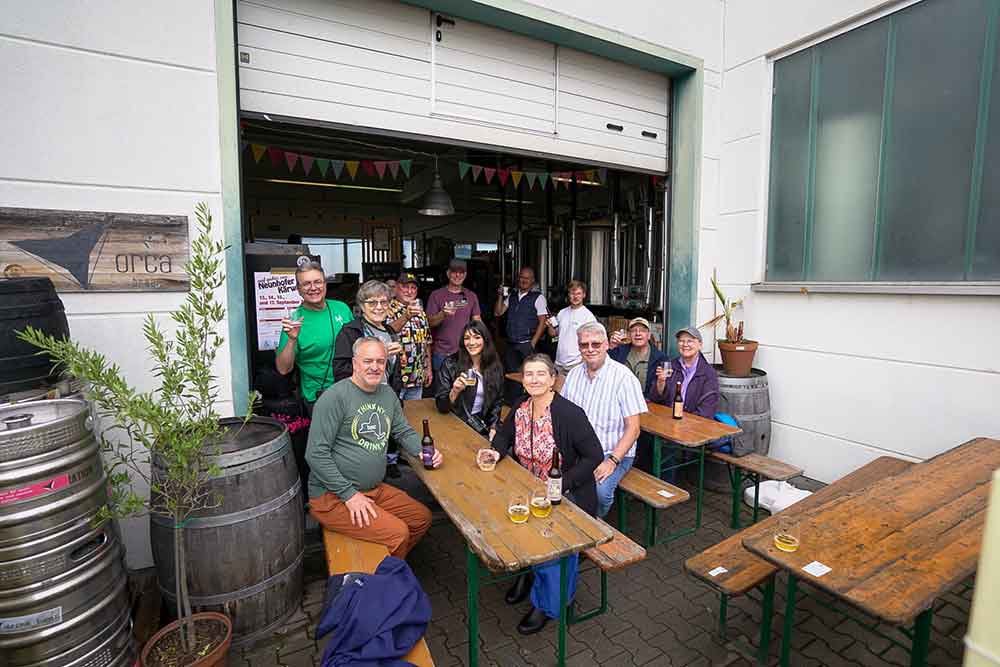
Photography courtesy of Magic Muncie, Social Media Manager, Hop Culture and Untappd
Released from the bonds of traditional brewing, Orca Brau has the freedom to serve whatever the helles they want.
“I always tell customers our recipes change, our hops change, maybe the beer name will change,” says vom Endt. “It goes back to the killer whale [mentality]. We brew what we want to brew without rules.”
If vom Endt wanted to open a brewery that makes money, he would only brew a helles, a red beer, and a bock beer. But that’s not Orca Brau.
This tiny but mighty brewery intentionally does something different, showing Germans that more delicious beers exist beyond those made with bottom-fermenting yeast.
“I want to show the people, the Franconian beer drinker, that there’s more than just helles, weizen, and bock beer,” says vom Endt, admitting that having to explain Orca Brau so often to people can get over-whale-ming, but that’s their mission.
For the future? Honestly, vom Endt has no idea. But what he does know is that it goes back to what drew him to beer in the first place—a small community working hard and having fun.
As he puts it, “We just try to have a good time with our beers!”
Pro Tip: If you go: Orca Brau is a small operation, so when you visit, you’ll probably see vom Endt himself, with his big beard and hearty personality, brewing or bottling. Peek into the beer fridge with all their to-go bottles, pick up as many singles as you can fit in your arms, plop down at one of the picnic benches outside, and drink to your heart’s content.

